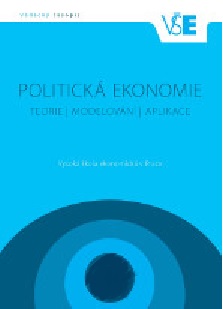Základní nepodmíněný příjem – co (ne)dokáže zajistit a v čem je jiný?
Unconditional Basic Income – What Can(not) It Guarantee and in What Way Is It Different?
Author(s): Jitka ŠpeciánováSubject(s): Social Sciences, Economy
Published by: Vysoká škola ekonomická v Praze
Keywords: unconditional basic income; labor market; labor supply; reservation wage; work incentives; welfare programs
Summary/Abstract: Unconditional basic income should guarantee that all residents have sufficient material conditions for their existence. Compared to other existing social security programs, basic income is unique in its simplicity. It also supports the individuals’ freedom of use of their disposible time. The article analyzes the expected impact of the introduction of an unconditional basic income on the labor market. It also compares basic income to other social security programs (wage subsidies, targeted social programs, a negative income tax and tax credits) on a theoretical level from the perspective of a recipient. Unconditional basic income’s effects on labor supply would be rather negative. However, relative to other social security programs, unconditional basic income can guarantee a higher or the same utility level, but it may not motivate to participate in the labor market. Additional positives are transparency and lack of incentives to cheat. The prospect of lower administrative costs depends on the specific basic income scheme in question.
Journal: Politická ekonomie
- Issue Year: 65/2017
- Issue No: 5
- Page Range: 601-622
- Page Count: 22
- Language: Czech

